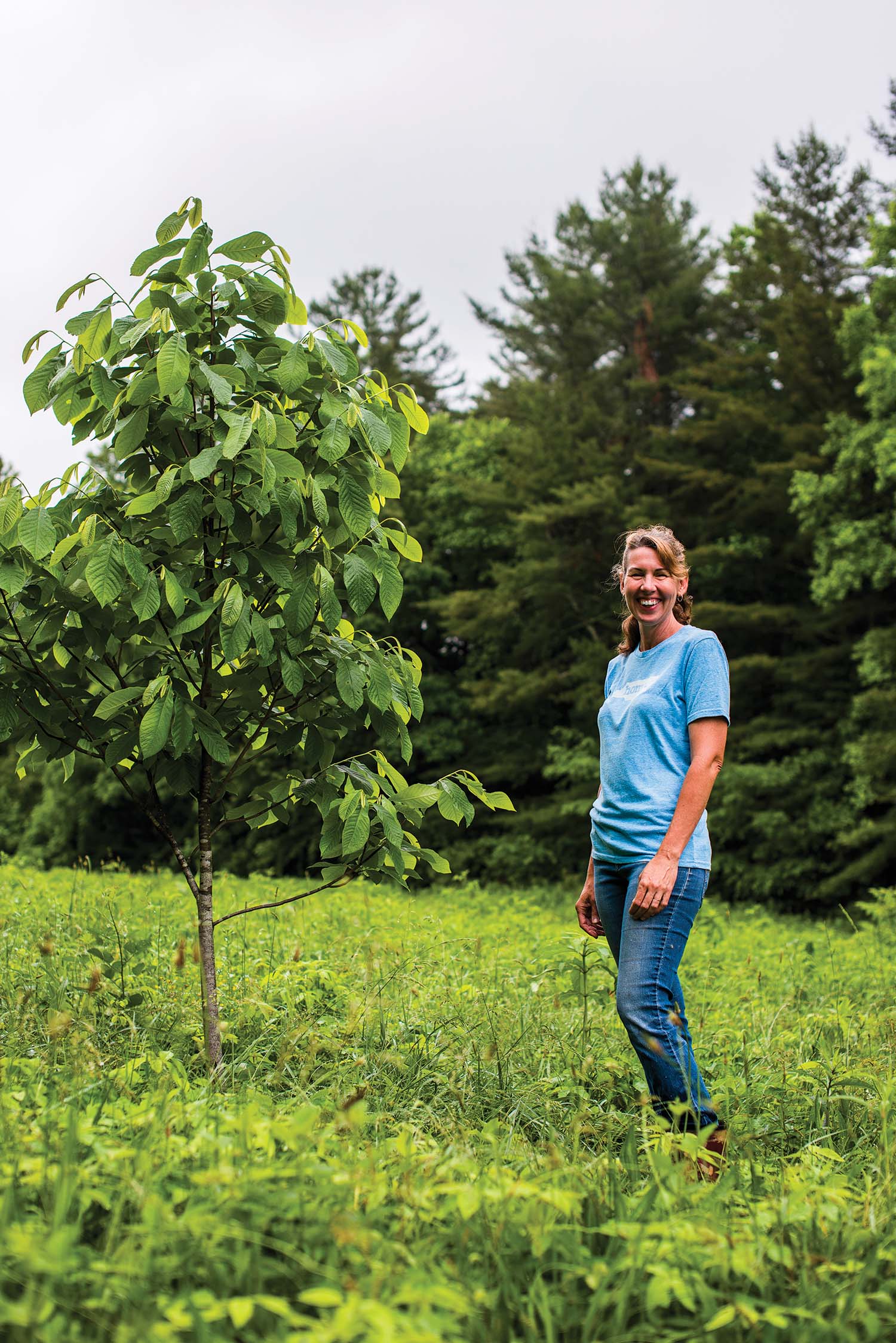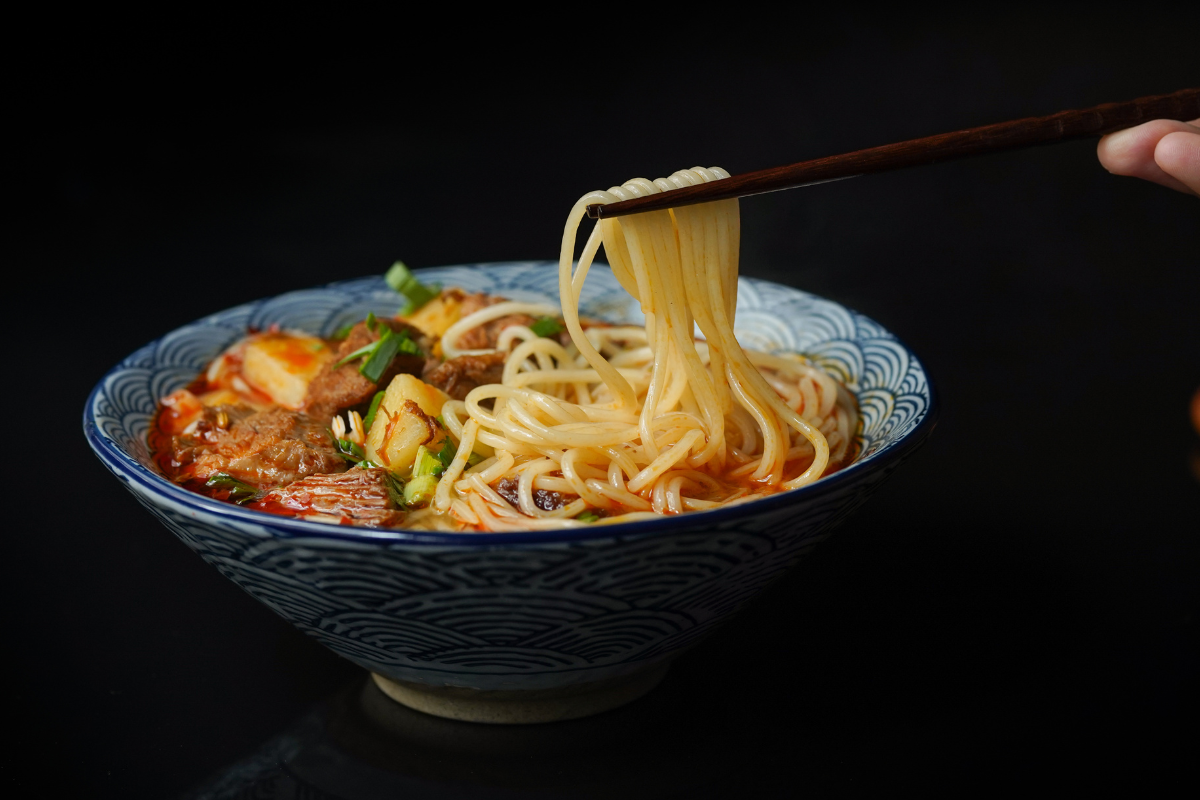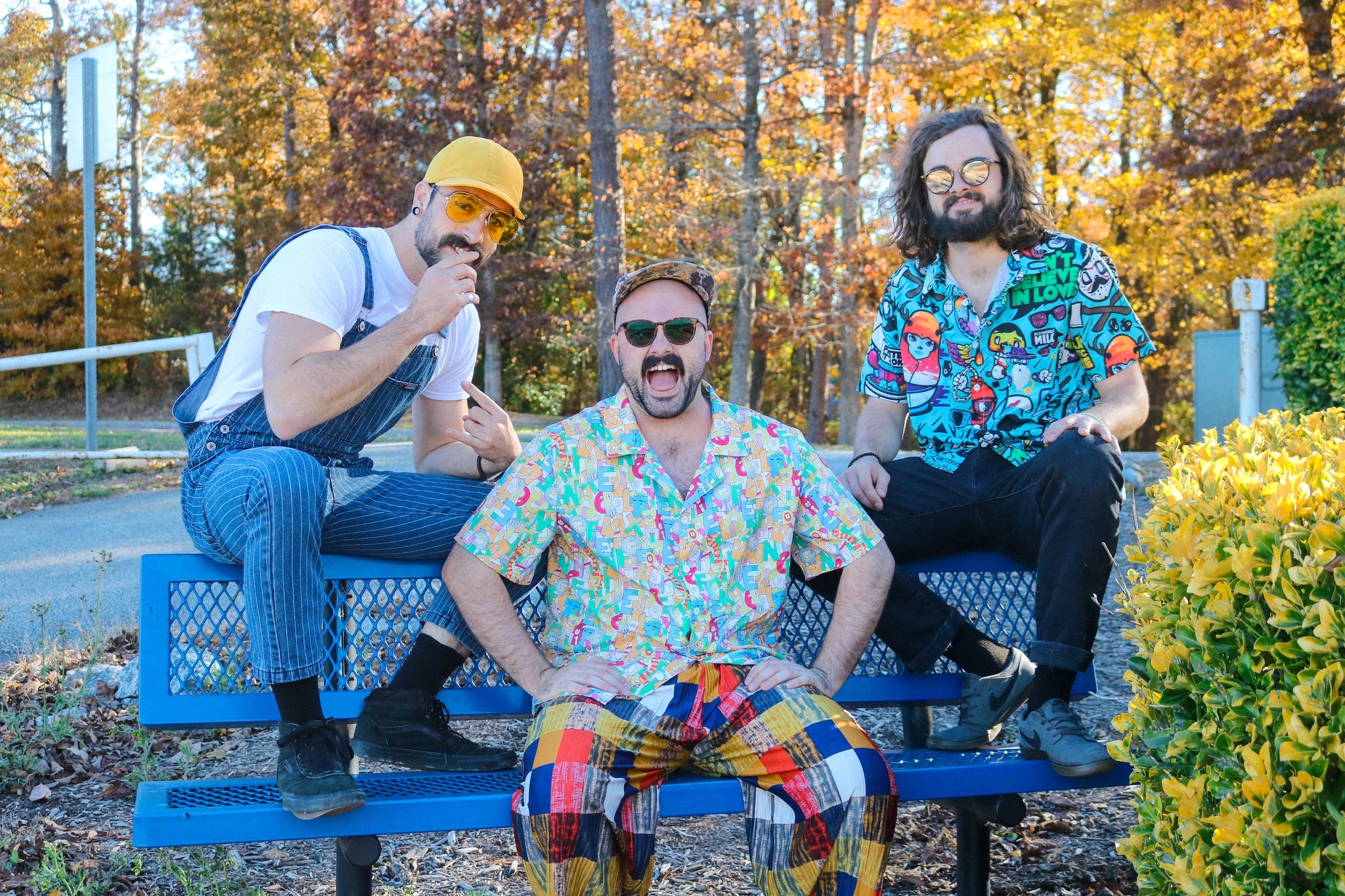
Kim Bailey with young paw-paw trees at her farm Milkweed Meadows.
Photo by Karin Strickland
“I just slice them in half. And it’s kind of like they grow in their own little cup and all you need is a spoon.” That’s how Kim Bailey, local pawpaw farmer and environmental educator, prefers her pawpaws.
Bailey, who owns Fruitland-area farm Milkweed Meadows, tends to a crop of 84 young trees and is planning on planting more. Her love of the pawpaw grew from the tree’s unique relationship with the zebra swallowtail butterfly. The swallowtail only lays its eggs on pawpaw leaves, and the caterpillars feed on it. In fact, their range maps almost exactly match each other, Bailey says.
She used pawpaws in pollinator gardens long before she planted them as a crop. “I was intending to plant them just for the butterflies,” she explains, “and somewhere along the line, I got to taste the fruit of one. And I thought, ‘I’m going to plant a lot more of these because I need some for me, too.’”
Milkweed Meadows has long been in her husband’s family — as a dairy farm for many generations. These days, the milkweed produced here doesn’t sprout randomly, but is grown for the monarchs. In addition to her pawpaws, Bailey raises vegetables for Sow True Seed, and is expanding her cut-flower operation. And there’s also her caterpillar hoop tunnel: in spring, she says, “you can stand inside and hear the caterpillars crunching — like they’re eating potato chips!”
It’s here that her unlikely love affair with the pawpaw fruit blossomed. Bailey waxes poetic about the delicate wine-colored blossoms that unfurl in May, just as the leaves begin to open and are pollinated by beetles, flies, ladybugs, and even, sometimes, bees. Some growers, she says, hang dead fish in their orchards to draw bugs to the blooms, which smell a bit yeasty, rather than sweet. By August, the limbs are often bent under the weight of the fruit — up to a pound each. She also advocates the tree for its ease of cultivation — since it’s native, there are very few pests to look out for.
The most challenging aspect of growing pawpaws, Bailey says, is simply the time from planting to fruiting, which ranges from three years for a grafted, store-bought plant to 10 years from a seed. And it’s crucial to know that pawpaws don’t fruit alone; cross-pollination with other trees is required.
But any difficulty is worth it, in her mind. “The best way I can describe [the taste] is that it’s crème brûlée you can grow on a tree,” says Bailey. “It has a flavor of mango, banana, and pineapple and something tropical that you just can’t describe. It’s pawpaw. It’s distinctive.”
Local extension agent Craig Mauney, who will lead a pawpaw-themed event this month at Bullington Gardens, continually tests the fruit’s gourmet possibilities. He makes bread, ham spread, and what he calls “the best pawpaw trifle in the nation.”
Because cultivated paw-paws are still so rare, though, and because the foraged fruit is a treasure for man and beast alike, they’re hard to find even in season. And it doesn’t help that they have “the shelf life of an ice cube,” as Bailey quips. She hopes locals will use them in their gardens for the pollinators as well as for their fruit, and envisions a day when her farm, and others in the area, are producing pawpaws on a large scale.
Asked about her hopes for the years ahead, Bailey paints a lively scene: space for her work with seeds, an area for cultivating cut flowers, her orchard, and a large meadow garden, “For every flower I grow to cut, I want to have three or four that I leave for the pollinators in a wild setting.” And she envisions the warm voices and clinking silverware of farm dinners between the wide rows of the spreading pawpaw trees, heavy with their jade-green fruit.

The unassuming fruit looks vaguely like an unripe mango, but its gourmet taste belies its modest appearance.
Photos by Karin Strickland
“Celebrating the Pawpaw,” including cultivation tips and a tasting, happens Saturday, Aug. 18, 9am-12pm at Bullington Gardens (95 Upper Red Oak Trail in Hendersonville), led by Area Specialized Extension Agent Craig Mauney. $25. For more information, call 828-698-6104 or see bullingtongardens.org.



